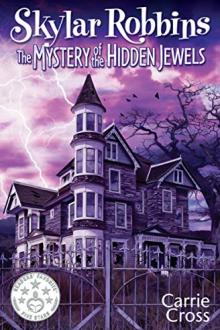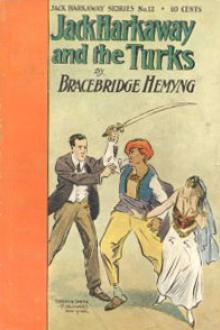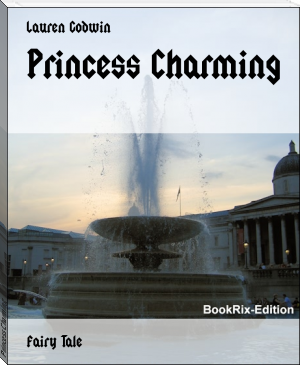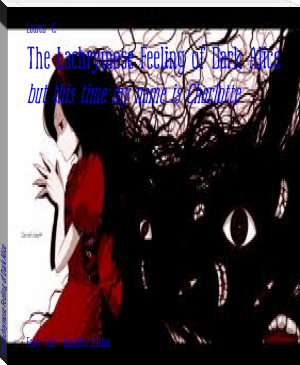Skylar Robbins: The Mystery of the Hidden Jewels, Carrie Cross [positive books to read TXT] 📗

- Author: Carrie Cross
- Performer: -
Book online «Skylar Robbins: The Mystery of the Hidden Jewels, Carrie Cross [positive books to read TXT] 📗». Author Carrie Cross
“No,” I surprised everyone by saying loudly. I looked at my parents. “Can we please see the rest of the house?” My dad nodded, and we followed the realtor out of the entryway and into the living room.
“Oh, it’s so dirty,” my mom complained, holding up a corner of a curtain that had some brownish stains on it.
“Is that blood?” I asked, aiming my iPad and taking a quick picture.
“Bird doo,” my mom said, letting go of the curtain.
Trailing vines had grown through the busted windows and taken root in the soiled carpet. Like the outside wanted to grow its way in, and it had in a big way. Ugly tan roots with knobs and boils slithered through cracks in the windows, crept down the walls, and burrowed through the carpet and into the floor. Then the roots spread, sending tentacles in every direction. It looked like a giant, gray-green octopus had taken over the living room.
“I know it needs some updating, but with a fresh coat of paint and a woman’s touch,” Ms. Knight hinted, smiling at my mother, “this place will have real charm. Let’s look at the rest of this floor at least, shall we?”
“Sure, let’s explore a little more of the house. We drove all the way up here,” my father said, smiling gently at my mom.
Excellent, I thought. He likes it too.
As Ms. Knight led us out of the living room she described the house. “It has at least three floors.”
“At least three?” My father smiled. “You aren’t sure?”
“It looks to me like it’s got three, but the listing agent said there are four. She probably meant the attic or the little room at the top of the turret.”
When no one was looking I typed a detective note:
There may be a hidden floor.
We followed Ms. Knight into a larger room that she called, “the ballroom.” There were mirrors on some walls and broken windows on the others. It had high ceilings with designs stamped into the plaster, and it smelled awful. Rain leaked in through the cracked glass, and below the windowsills soggy patches of carpet stunk up the room. It smelled old and moldy and damp and rotten, like really bad breath. My dad looked around the ballroom with an intense look on his face, nodding to himself.
“This house has character,” Ms. Knight said as she led us down a pitch-black hall toward the long kitchen. A little light came in through small windows and I noticed that lots of the kitchen drawers were pulled out. All of them were empty, and a few were upside down on the floor, scattered between piles of what my dad called, “rat dirt.” Someone had really searched this place thoroughly. I wondered what they had been looking for.
A round cast-iron stove sat in one corner, and the rest of the kitchen looked just as old-fashioned. There was a weird telephone with a separate earpiece and a crank attached to the wall next to some wood shelves. “Will you look at that antique,” my dad said, walking over to it. “Never thought I’d see one of these.” I figured it probably didn’t work anymore, but it would be fun to use if it did.
My mom leaned against the counter and looked around the kitchen. “Ugh!” she cried suddenly. Her hand had landed in a pile of something white and brown and gooey that a pigeon had left behind. She looked at it, and then groaned as she showed me her palm, trying not to laugh. When she turned the handle on the sink, nothing came out of the faucet.
“Sorry. Here’s a tissue.” The realtor handed my mom a Kleenex, then turned to smile at my dad and me. “There’s something else you should know about the house. After Xandra Collins was presumed dead, the heirs divided her belongings but they couldn’t find her jewelry box. At first they assumed the box was stolen, but then they found a mysterious note, written in her handwriting,” Ms. Knight said.
My ears pricked up like a German shepherd’s. “What kind of mysterious note?”
“The note said she had hidden her jewelry box somewhere on the estate. And whoever is smart and brave enough to follow the clues she left behind will be rewarded by inheriting her fortune in diamonds.”
“Wow,” I said, trying to memorize the wording of the note. “It almost sounds like she knew she was going to disappear beforehand.” All three of them looked at me with their eyebrows shooting up. They were probably surprised that I’d thought of it before any of the adults did. “What clues did she leave?” I asked Ms. Knight as we followed her out of the kitchen.
“That’s the thing. Her heirs searched the whole house, but they couldn’t turn up any clues.” She made a sad face at me, like it was too bad that the clues didn’t exist.
But I thought this was great. I couldn’t wait to break out my detective kit and start looking for the clues. Xandra’s heirs just weren’t smart enough to find them.
This meant the jewelry box was still hidden.
“Now, in addition to the large rooms on all of the floors,” Ms. Knight continued.
“All three or four of them,” my dad joked.
“There’s a dumbwaiter, a butler’s pantry, a gazebo, and a greenhouse.”
“A dumbwaiter? Like in Harriet the Spy?” I asked.
Ms. Knight ignored me, leading us into a little room behind the kitchen. “This is the butler’s pantry.” There were many shelves for storing food, a deep metal sink, and a second dishwasher. “Just look at all this cupboard space!” She smiled at my mom and waved her arm through the air. “You have a ton of storage.”
“Is this where the dumb waiter works?” I joked, and my dad put his hand on my shoulder.
“Show us the dumbwaiter, please,” he said to Ms. Knight.
She looked embarrassed. “Actually, I don’t know exactly where it is.” At the end of the butler’s pantry there was a narrow door. Ms. Knight jiggled the handle but it was locked. “A dumbwaiter is like a small elevator—too small for a person to ride,” she explained. “The cook could set meals in it to be carried up to the master bedroom or to the formal dining room on the second floor. Some homeowners use dumbwaiters to lift books up to the library or carry heavy items to the top floors of their houses.”
“Thank you,” I said as my fingers tapped my iPad.
Find the dumbwaiter.
“In addition to the living room and ballroom, there is a sitting room, a study, and a library. Over twenty rooms in all.”
That’s a lot of places to search for clues, I thought.
We walked up the first flight of stairs and I wandered into a bedroom and looked out the window. From this high up, all I could see were the ragged mountaintops across the canyon and an occasional flash of lightning. Looking down, I noticed that a black metal railing ran around the edge of the side yard, surrounding the property like a rodeo ring. It was about four feet high and had upright posts about every four inches. One part was dented badly into a big V, like it had been bashed in or struck by lightning. I would have to be careful if I explored outside at night. If I stumbled through that part of the railing in the dark I could plunge down the rocky hillside and disappear like Xandra Collins.
After touring the second floor and then the third, I lost count of the rooms and couldn’t remember my way back to the front door. My dad liked the house, and I craved it. I just had to live here. “Could I have that little round room in the turret for my bedroom?” I asked. “The one on the third floor—or the fourth. Depending on how many there really are.” My dad didn’t answer, but he did give me a wink.
The room I wanted was very small, but it had a spiral staircase on one side that led up to the tip of the turret, where there was a cozy round room that I loved. It would be perfect for my detective office. Its ceiling came to a point, it had windows all around, and it was so high up that you could see in every direction for miles. Since it was the end of summer, the mountains were covered with dry grass and brush that had browned in the sun. Way past the tips of those mountains I saw the blue-green sea shimmering in the distance. It was my favorite thing in the entire world: the ocean surging powerfully forward, vast and beautiful. Plus, if we bought this house I’d still live pretty close to all of my friends, and I’d get to go to Pacific with Alexa and Dustin.
“I’ll have to show you the backyard another time because of the rain, but how do you like it so far?” Ms. Knight asked my mom.
“We’ll need a gardener to rip all those vines out of the living room before we can even think about remodeling.” My mother looked like she smelled something unpleasant. “The whole house is really grimy and in pretty poor shape.” She probably thought it was grimy because her hand had landed in bird poop.
“I’ll clean it,” I offered.
“It does need an awful lot of work,” my father said, looking around.
“I’ll help,” I pleaded. “I’ll weed the carpet.”
“It’s quite a bargain,” Ms. Knight said. “It won’t last.”
“Can we get it?” I begged my dad.
He looked at my mother and smiled, crinkling his eyes. I could tell he liked it too.
“We’ll think about it,” my mom answered.
3
Abandoned MansionEven though they hadn’t decided which house to buy, my mom told me I’d better not wait until the last minute to pack. She suggested I go through my cupboards and make bags of toys to give to the homeless shelter. I figured the sooner I packed, the faster she’d have to make up her mind about the mansion on the hill. She couldn’t let me sit around in an empty room, right? So the next morning I took my creative writing notebooks and my journal out of a desk drawer and piled them in a box with my art supplies. I cleaned out the drawer in my bedside stand, packing several old notepads, a candle, and some favorite rocks and seashells I’d picked up on the beach. Using a thick black marker I labeled this box, “Skylar—personal and private.”
Then I packed my book collection. I had so many favorites it took three boxes to hold them all. Picking out a bunch of games and toys I’d outgrown, I put them in another box and marked it, “Donate.” Looking out my bedroom window, I saw the tree house my dad built, my swing set, and mom’s garden. Our backyard, our house, our neighborhood. Everything I’d grown up with was about to change.
I pictured the warped board in the middle of my tree house floor. I always had to be careful not to trip over it on the short walk to the other side of the “dining room.” This was where I liked to eat my afternoon snack while watching the neighborhood through the pink Super-Zoom binoculars my grandpa gave me for my birthday. Leaning out the window eating peanut butter crackers, I’d look up and down my block hoping to see something mysterious. Or maybe some cute boys playing ball in the park down the street. Staring into the backyard, I realized I’d better spend as many afternoons in the tree house as possible while I still had the chance.
Then I thought about another dining room: the one we ate in on Sunday nights when my grandfather came over for dinner. My mom called it, “the formal dining room.” That cracked me up since it was smaller and more cramped than where we usually ate, but when Grandpa came over, out came the linen tablecloth and the silver that needed that smelly gray polish to clean.
Not that my dad’s father wanted anything fancy. Not even. Grandpa used to joke that he was “nothin’ but a street cop,” and then his blue eyes would crinkle around the edges like my dad’s. His favorite part of dinner was dessert, just like me. Sometimes he’d sneak us a couple of Oreos before dinner, and when I was younger we’d pretend we were in a commercial together. We’d twist off the tops, look





Comments (0)